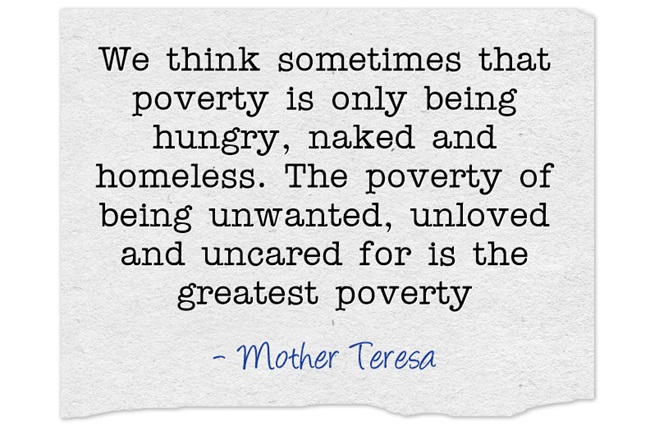Have you ever heard or even believed the saying: “Most of us are a paycheque away from being homeless”?
This belief could not be further from the truth. Think about it for a moment. If you lost your job, acquired a major health issue, or perhaps got evicted from your home, what would happen?
For most of us, we would open our eyes, turn around, and notice how much support we would have from friends and family.
In my opinion, both the greatest unmet need of most homeless folks, and one of the biggest underlying reasons for their homelessness is this: Lack of support and friendships. Said another way: they have nobody they can trust, nobody who “gets them.”
Human beings don’t have a huge advantage over other animals in terms of strength, size, speed, or senses of sight or smell; however, our ability to plan, reason, and most importantly to communicate and connect, makes us unique and dominant in the animal kingdom. With increases in individualism, however, we have seen loneliness and isolation increase at massive rates—curiously correlated with increases in homelessness in western cultures.
From the 80’s until now, scholars estimate that the percentage of people who felt lonely at any given time has doubled from 20% to 40%!
Yet with such an increase in loneliness, we also see an increase in the stigma attached to it. The only thing worse than feeling alone and invisible is feeling shameful about feeling alone and invisible.
This increase in loneliness is also having significant effects on health and mortality. Did you know that exposure to air pollution increases your chances of early death by 5%; obesity increases your changes of early death by 20%; excessive drinking, by 30%; Loneliness, perhaps surprisingly, increases your chances of early death by 45%!! (stat from John Cacioppo)
While it is certainly rewarding to offer food, drink, clothing, or even money to the homeless to help them meet their needs, a listening ear is perhaps the most rewarding thing to offer them. In many cases the homeless and poor were rejected their entire lives; nobody cared for them and nobody has shown themselves worthy of their trust. Often they are ironically surrounded by people while they live in a shelter, yet they feel isolated and unwanted.
During my time as a counsellor and clinician at Canada’s largest homeless shelter, I had the privilege of getting to know some of these lonely people who feel invisible. C.S. Lewis once said, “What draws people to be friends is that they see the same truth.” When the homeless are asked about their unique stories and are heard with curiosity and interest; when someone truly ‘gets’ them; when someone understands their plight, the reasons for their situation and behaviour and views them with compassion, empathy, and care; when they can realize perhaps for the first time that they are valuable, wanted, important, not because of what they have accomplished but because everyone is valuable, wanted, and important; then, real progress can be made—progress towards purposeful and meaningful living rather than mere survival.
Mother Teresa summarizes it well when she said:
“We think sometimes that poverty is only being hungry, naked and homeless. The poverty of being unwanted, unloved and uncared for is the greatest poverty”
Joshua Adams, R.Psych.

